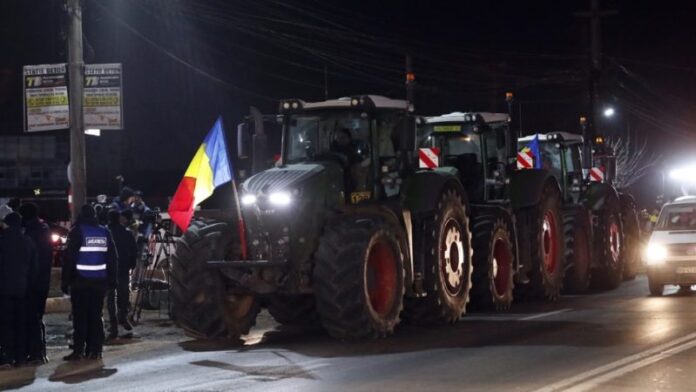The Romanian government adopted measures on Thursday, transposing into law the solutions reached in negotiations with protesting transporters and farmers during the week, although protesters remain on the streets and have extended their blockade to a second border crossing with Ukraine, according to Euractiv.
Among the measures adopted on Thursday, the government decided to honour the agreement on Tuesday and directly support €100 per hectare to the vegetable sector.
Such measures would cost the government close to €250 million and aim to compensate for losses incurred due to the war in Ukraine for crops planted in autumn 2022.
Another new measure is the postponement of loan instalments for agricultural producers affected by last year’s drought.
But more measures will follow, said Prime Minister Marcel Ciolacu, emphasising that “the protests have been justified”.
While the dismissal of the head of customs and the vice-president of the treasury sparked complaints about the lack of checks on Ukrainian grains that led to the recent negotiations and resulting government decisions, some protesters, not affiliated with relevant associations, are demanding clear deadlines to implement their demands.
Starting Sunday, they will be allowed to hold a three-day protest in Bucharest’s Constitution Square, the capital’s mayor decided on Thursday.
But since Thursday morning, demonstrators have also been blocking the road to Halmeu customs on the border with Ukraine, demanding a halt to grain imports from Ukraine and leaving only one lane open for emergencies.
Siret Customs has been blocked since Monday, causing a 12-kilometre queue of over 100 trucks unable to enter Romania from Ukraine. However, as of Wednesday, the protesters have allowed trucks to exit Romania for Ukraine.
However, 50% of all shipments across the Romanian-Ukrainian border pass through Siret customs, Volodymyr Balin, the head of a Ukrainian hauliers’ organisation, told RFI Ukraine, adding that this significantly impacts Ukraine’s exports.
Indeed, the border protests have had a severe economic impact on Ukraine, with blockades forming in Poland, Slovakia, Hungary, and Romania.
“In all these states, the strikes were organised by pro-Russian parties. I think this is enough to explain such a syndrome”, Balin added.


